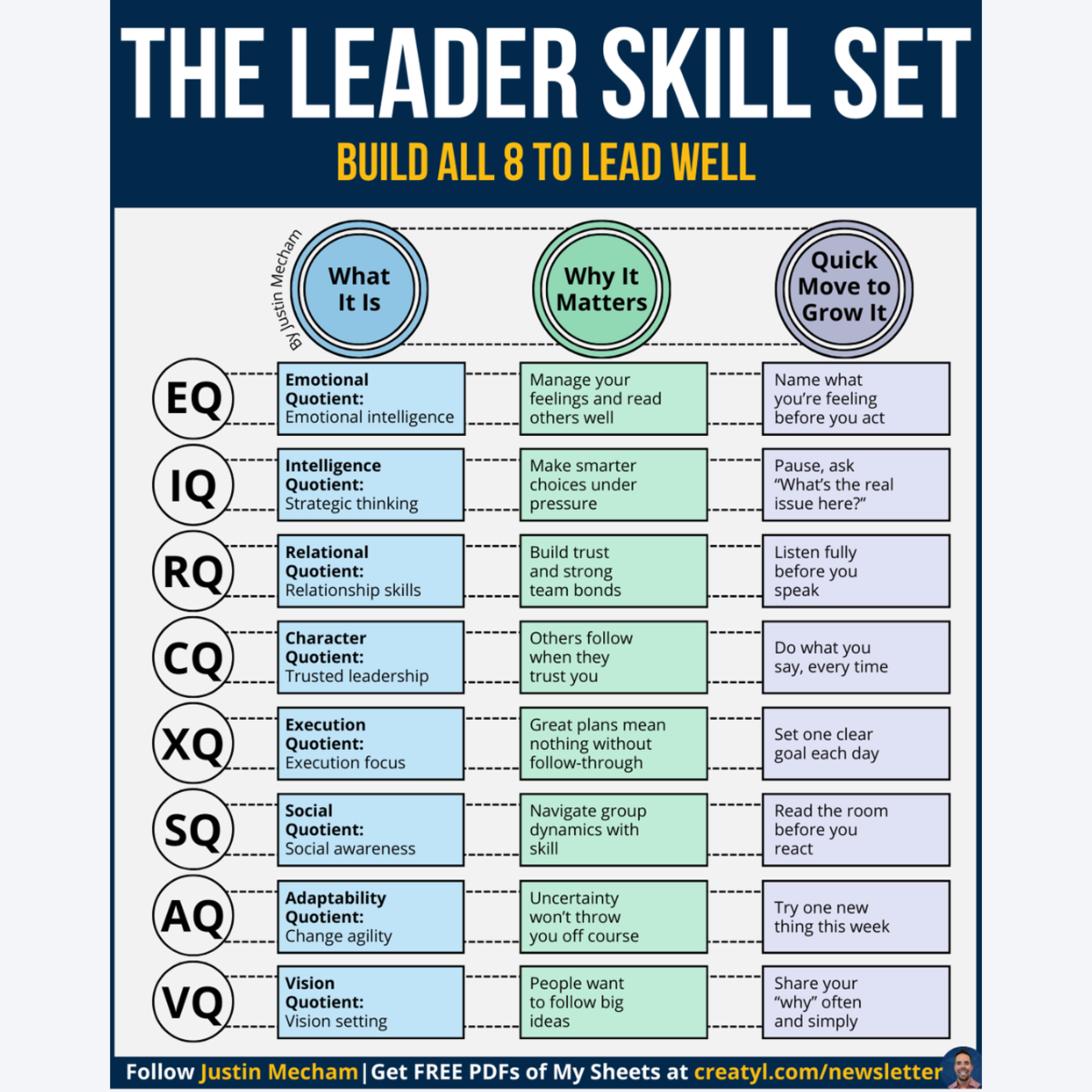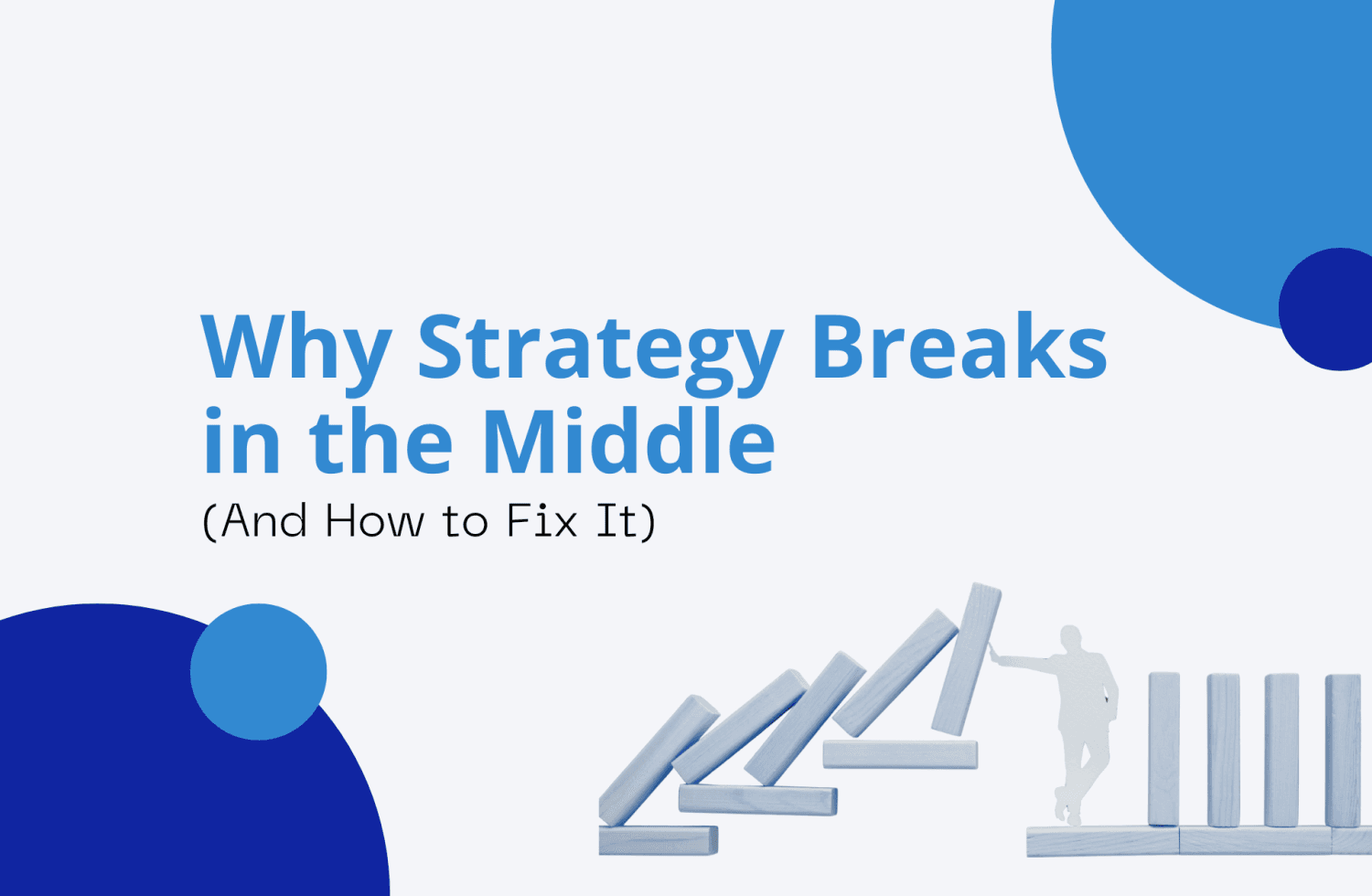If You Want Today's Infographic, Click Here.
Why Titles Don’t Mean What We Think They Do
We’ve all seen it before: someone gets a shiny new leadership title, but nothing really changes.
People don’t listen more closely. The team doesn’t suddenly feel energized.
If anything, things get more confusing.
That’s because titles don’t carry the weight we think they do.
People don’t follow a title. They follow a pattern.
They follow the person who shows up consistently—not the one who has the most authority, the loudest voice, or the slickest slides.
The truth is, real leadership happens in the small moments. The moments most people overlook.
The way you respond when something goes wrong.
The way you speak when you're frustrated.
The way you show up when no one else does.
It’s not about being perfect. It’s about being reliable.
This blog is for anyone who wants to stop performing leadership and start practicing it—in a way that’s honest, simple, and powerful.
What Most Leadership Advice Gets Wrong
Leadership theory can be helpful. But when the pressure is real, theory usually vanishes.
What sticks is muscle memory—the habits you’ve built over time.
We spend too much energy trying to sound like leaders and not enough energy acting like the kind of person others actually want to follow.
That’s where the Leader Skill Set comes in.
It breaks leadership down into eight clear skill areas that you can practice.
You don’t need to master all of them at once. Just pick one. Build a habit. Then stack the next.
The result? You start building real trust. Not because of your title. But because of how you move every day.
The 8 Quotients That Build Real Leadership
EQ – Emotional Intelligence
You can’t manage others well until you can manage yourself under pressure. If you blow up in meetings or shut down when things get hard, it affects your team more than you realize.
Quick move: Start naming what you feel before you act on it. Sounds basic, but it's game-changing.
Try this: Keep a simple list of common emotions nearby. Before reacting, identify what you're actually feeling. Label it. Then respond.
IQ – Strategic Thinking
In fast-paced work, it’s easy to solve the wrong problem. Leaders who think clearly under stress move their teams forward while everyone else is spinning.
Quick move: Ask, "What’s the real issue here?" before offering a solution.
Try this: Pause for two minutes before responding to anything high-stakes. Use that time to clarify the root problem.
RQ – Relational Skills
Strong relationships aren't built during team bonding events. They're built in how you listen, speak, and respond every day.
Quick move: Listen fully before you speak. Reflect what you heard.
Try this: In your next meeting, repeat back what someone said before giving your opinion. Watch how quickly tension drops.
CQ – Character Quotient
Trust doesn’t come from likability. It comes from dependability. People follow leaders who do what they say, every time.
Quick move: Only make commitments you can keep. Then follow through.
Try this: Create a "promise tracker". Write down every commitment you make, big or small. Review it weekly.
XQ – Execution Focus
A great idea means nothing if it doesn’t get done. Leaders who follow through earn the kind of trust that can’t be faked.
Quick move: Set one clear priority each day.
Try this: Use the 1-1-1 method: 1 goal, 1 block of time, 1 log of what got done. Repeat daily.
SQ – Social Awareness
Paying attention to group dynamics is one of the most underrated leadership skills. It prevents friction before it starts.
Quick move: Read the room before reacting.
Try this: Before your next meeting, notice who usually stays quiet. Make space for them. Ask for their input early.
AQ – Adaptability
Change is constant. Leaders who don’t freeze or panic during change help everyone around them feel steadier too.
Quick move: Try one small new thing each week.
Try this: Every Friday, ask yourself: What unexpected thing did I handle well this week? Write it down.
VQ – Vision Setting
People need direction. Not a big speech—just a simple reminder of where they’re headed and why it matters.
Quick move: Share your "why" more often and more simply.
Try this: Write your current mission in three lines or less. Repeat it in every 1:1 and every team meeting.
A Real-World Story: When Leadership Habits Changed Everything
A fast-growing startup brought me in because things weren’t working.
The product was strong. The talent was solid.
But decisions kept stalling, and energy was dropping.
Meetings went in circles. People interrupted each other. Nobody owned next steps.
The CTO told me, "I don’t get it. I’m trying my best. I just don’t think they see me as a leader."
And they were right—but not because of their skills. The team didn’t lack respect.
They lacked clarity, trust, and follow-through.
Instead of teaching them more theory, I helped them rebuild their leadership patterns:
- Meetings ended with clear action, ownership, and deadlines (XQ).
- The CTO practiced naming what they were feeling instead of reacting from stress (EQ).
- They made a habit of reflecting back team ideas before sharing their own (RQ).
- We tracked all micro-promises and reviewed progress weekly (CQ).
Thirty days later, everything changed. Decisions were faster. Tension dropped. Accountability rose.
The team didn’t just hear the CTO—they trusted them.
Not because they had a title. But because their habits finally aligned with what real leadership looks like.
Recommended Tools to Help You Start
Book: Atomic Habits by James Clear
The best book on making small changes that stick. It’s readable, practical, and will help you rethink everything from morning routines to how you follow through under pressure.
TED Talk: "Your Body Language May Shape Who You Are" by Amy Cuddy
One of the most popular leadership-related TED Talks of all time. Simple ideas, strong science, and instantly usable techniques to improve how you carry yourself and how others perceive you.
Tool: Udemy Role Play (AI Soft Skills Trainer)
This is a smart way to practice real-world leadership scenarios. You role-play challenging conversations with AI and get feedback on your responses. It's like having a private leadership coach on-demand.
The Kind of Leader People Remember
Leadership isn’t about titles. It’s about trust. And trust is built in patterns.
Most of the moments that shape your leadership won’t feel big when they’re happening.
They won’t be flashy. They won’t be planned. And they probably won’t be comfortable.
They will happen when things get quiet.
When someone on your team is discouraged.
When you’re tired but still need to show up clearly.
When you want to interrupt but choose to listen.
That’s where real leadership lives. Not in how inspiring you sound—but in how reliable you are.
The strongest leaders aren’t perfect. They’re consistent.
They don’t always have the best ideas. But they make others feel safe enough to bring theirs forward.
You don’t need to know more to lead better. You just need to act on what you already know.
Start small. Stay steady. Let your habits speak.
That’s the kind of leadership people don’t forget.
Download the Infographic
Want a visual of the full Leader Skill Set you can print, pin, or share with your team? You can download the complete infographic in a clean, easy-to-use PDF format.





